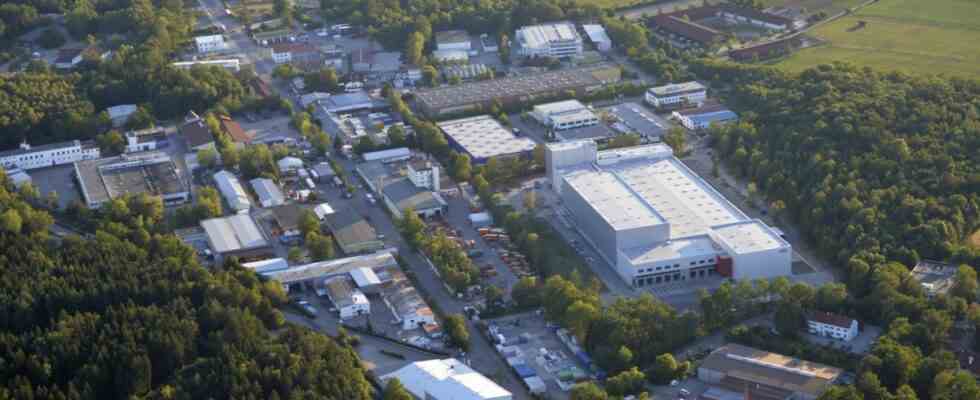The municipal council of Höhenkirchen-Siegertsbrunn has – gnashing its teeth – cleared the way for gravel mining on the Muna site. Accordingly, a Hohenbrunn entrepreneur may dig 25 meters deep in the five-hectare area at the edge of the forest east of Hohenbrunner Straße for up to fourteen years and then fill the pit again. After the municipal council twice rejected the associated application, it now voted in favor of approval. At the same time, the committee decided to conclude an urban development contract with the entrepreneur, which not only regulates the conditions for gravel quarrying on the Muna site. The agreement also excludes further excavations on the property on Egmatinger Straße near the Leonhardikirche, which the entrepreneur had also applied for.
“Plague or cholera – there is no good decision, only one that is not so bad,” said Gudrun Hackl-Stoll (Greens) about the dilemma in which the municipal council felt brought. After all, all factions reject the gravel quarrying, which represents an “unacceptable burden”, according to Manfred Eberhard from the Independent Citizens (UB). However, after examining the application in detail, the district office informed the town hall that the refusal by the municipality was unlawful and that the supervisory authority would issue the approval as an alternative in case of doubt.
According to Otto Bußjäger, a lawsuit would be “Russian roulette with a full magazine”.
Now the municipality would have had the opportunity to designate concentration areas for gravel extraction via a partial area use plan. Although this would have meant a delay of two to three years, after that considerable areas of the site would have been released for excavation. While the UB supported the creation of a partial land use plan, the majority in the municipal council rejected this – “because the disadvantages of concentration areas are serious,” said Anita Reiprich (SPD). The possibility of a lawsuit by the municipality against the decision of the district office was also rejected, as the chances of success would be low, emphasized Mayor Mindy Konwitschny (SPD). Roland Spingler (CSU) spoke out in favor of a lawsuit, whereupon Otto Bussjäger (UB) accused him of playing “Russian roulette” – “only that the magazine is full”.
After a heated debate, a 20:3 majority voted in favor of the gravel mining application and the town planning contract. Among other things, it stipulates that the footpath and cycle path on Schnepfenluckenweg will be retained and that the gravel trucks will not drive to the pit via the site – “which, to be honest, is to the detriment of the Hohenbrunn community and the Luitpoldsiedlung,” said Konwitschny. The contract also stipulates a maximum of 216 truck trips per week, operating hours from 6:30 a.m. to 6:30 p.m. on weekdays and until 12 noon on Saturdays.
A mobile crushing and crushing plant may only be set up two weeks a year. In addition, the entrepreneur undertakes to use a wheel washing system and to take measures to reduce dust. If the conditions are violated, high penalties are threatened, emphasized Konwitschny. Karsten Voges saw things a little differently: “The contractual penalty if passed on corresponds to about one percent of the turnover that you make with this gravel pit,” complained the Greens municipal council and voted against it, as did Spingler and Janine Schneider (Greens), who “didn’t see much benefit ” saw in it.
After the municipal council’s vote, the way is now clear for the gravel quarrying on the Muna site – and yet the matter could still end up in court. At the citizens’ information event, residents who were directly affected announced that they would take legal action against the approval of the district office. And the municipality of Hohenbrunn will also examine this step, announced its mayor Stefan Straßmair (CSU). After all, they have to bear the brunt of the traffic caused by the gravel trucks. Meanwhile, Konwitschny emphasized that her community would not contest the decision of the district office itself. “But we support everyone who wants to take legal action.”

